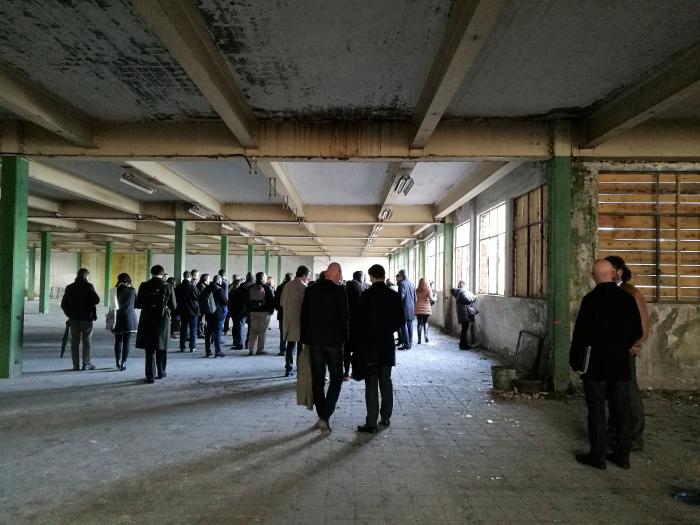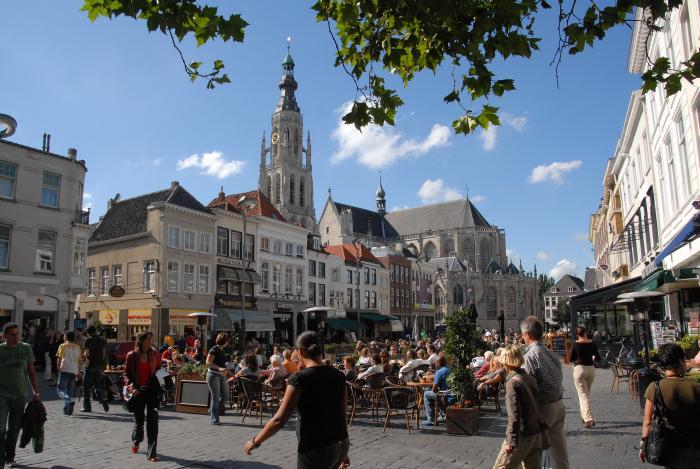Why supporting Innovative Actions?
As one of the most urbanised territories in the world, the European Union is aware that urban areas are strategic places to address both threats and opportunities related to sustainable development. Urban areas serve as drivers for the local and global economy, innovation, science, culture and education, as well as places where evolving spatial, demographic, economic, environmental, social and technological challenges emerge. However, complex challenges and transitions cannot be solved without strong, innovative thinking at all levels of policy and action.
The reinforced sustainable urban development dimension of the Cohesion policy is a conviction that EU cities have to be involved in the design and implementation of policy responses to their local challenges. There is strong evidence suggesting that the nature and scale of the challenges faced by urban authorities demand much more than traditional policies and services. Urban authorities need to be bold and innovative in designing and testing new services and products to respond to increasingly complex and interconnected local challenges related to sustainable urban development.
However, whilst research on urban issues is well developed, these potential solutions are not always put into practice, since urban authorities might be reluctant to use their own financial resources to fund ideas that are new, unproven and hence, risky. This limits the capacities of urban authorities for experimentation and testing. Consequently, this lack of experimentation at urban scale (in ‘real life’) is one of the reasons why the European Commission continues supporting urban innovations through the EUI-IA.
The overall ambition of this instrument is to foster the deployment of proof-tested urban innovations across the EU and to provide opportunities for cities, as enablers of innovation, to take the risk to turn ambitious and creative ideas into pilot projects that can be tested in real urban settings. In addition, this instrument now offers a structured and systematic transfer mechanism to ensure the knowledge generated from successful innovative actions is effectively transferred and replicated to other urban realities across Europe.
The ultimate goal is to allow other urban actors and cities across Europe to develop the knowledge base and confidence that is needed for subsequent up-scaling and replicating of innovative solutions. These results are to inspire the use of mainstream Cohesion policy programmes in urban areas with already proof-tested innovations.

©CAUE 75- Ecole Emeriau
What type of support is provided?
EUI-IA provides two levels of support:
- Funding for the testing and transfer of your urban innovative solution. EUI-IA co-finances up to 80% of your project’s activities and can provide you with up to €5 million European Regional Development Funds (ERDF) to implement your project.
- Capturing, sharing and transferring the knowledge that your project will generate. EUI is interested in understanding what worked in the implementation of the innovative solution and what did not work, in order to draw lessons, capture the knowledge and share it with urban policymakers and practitioners across Europe. Therefore, following the implementation of the innovative actions, EUI will collect and share the results from the experimentations of the projects. This will feed into transfer activities, with the aim of fostering innovation capacities and knowledge building for all EU urban areas and to mainstream innovative solutions in sustainable urban development.

Visit to Beta 2 Building 2
What kind of projects are funded by Innovative Actions?
You have a bold idea that has never been implemented before? You are looking to tackle an urban challenge you are facing, but need support? Then, the EUI-Innovative Actions can help you!
Based on calls for proposals organised on pre-defined topics proposed by the European Commission, the selected Innovative Actions projects are:
Innovative
Innovative Actions support pilot projects that have never been tested anywhere else in Europe. Such projects are highly experimental and hence risky, consequently not likely to be funded by traditional or mainstream sources of funding. The innovativeness of the proposed solution can be understood as an evolutionary approach where the innovation lies in the new elements added to the existing idea, or as a revolutionary approach with completely new solutions never tested before in the policy field concerned in the EU.
Participative
The Partnership must be relevant to address the identified urban challenges and to implement the proposed solution. Participation and co-creation with Partners, relevant stakeholders, and target groups, are key for the development and implementation of genuinely innovative and experimental projects.
Measurable
The Innovative Actions implemented must be measurable to draw meaningful conclusions regarding the added value of the project in the policy area concerned. A robust methodology is necessary to measure expected impacts, as well as clear and quantified results to capture the expected change in the local situation resulting from the project.
Transferable and scalable
The selected solutions address urban that can be relevant to other urban authorities in Europe and applicable to other local contexts. Based on lessons drawn from the project and shared to a wider audience of policy makers and practitioners, the Innovative actions have the potential of being scaled and transferred to other urban areas across Europe.
Of good quality
Innovative Actions proposals must show robustness and operational readiness. They must prove to be justified, realistic, consistent, and coherent. They should also be ready to be managed effectively, implemented swiftly, and demonstrate value for money.
Who can get support?
- Innovative actions are led by Urban authorities - or a grouping of urban authorities - classified as cities, towns, or suburbs, with a total population of a least 50 000 inhabitants, located in one of the 27 EU Member States.
- Given the complexity of urban challenges, Delivery Partners are needed to actively support urban authorities in the design and implementation of their innovative solution. A relevant and complementary consortium of Partners should be mobilised from the local ecosystem to bring thematic expertise and knowledge on the specific policy issue to be addressed. Partnerships should be as diverse as possible , ideally reflecting the quadruple helix (i.e. public authorities, industry, academia and civil society).
- As part of the transnational transfer component embedded in EUI-IA projects, Transfer Partners – being EU municipalities from other countries interested in learning from the experimentation and sharing similar urban challenges – can apply during project implementation to follow the processes and results of the project. They belong to the Partnership, with the aim to prepare the process of replicating the tested solution, increase their capacity for implementing innovative solutions, and provide the Main Urban Authority with an external perspective.
- Any other urban practitioners and stakeholders interested in the outcome of Innovative Actions can take inspiration from our innovative projects directly on the project pages or on Portico, the urban knowledge platform developed by EUI.

Breda Grote Markt
Innovative actions under EUI activities
Each individual EUI-IA project will benefit the EUI as a whole. The underlying principle of EUI is to create an effective value-chain between its different strands - Innovative actions, Capacity building and Knowledge building - to achieve stronger coordination, synergies and complementarities between the urban support tools of the Cohesion policy.
EUI-IA will collect and share results from experimentations to foster innovation capacities and knowledge building for all EU urban areas. The expected impact is the increased innovation capacities and profiles of European cities of all sizes, independently of their geographical location or demographic character. Both the thematic and the horizontal knowledge of experimenting and replicating tested solutions will feed into the on Portico, the urban knowledge platform developed by EUI, and the capitalisation activities, as well as into the activities of the EUI capacity building. Different mechanisms will be set up to ensure the capitalisation and transfer of the knowledge – networks of cities in cooperation with URBACT IV, peer learning, involvement of the urban authorities in the activities of the Urban Development Network, as well as activities undertaken by Urban Contact Points.
